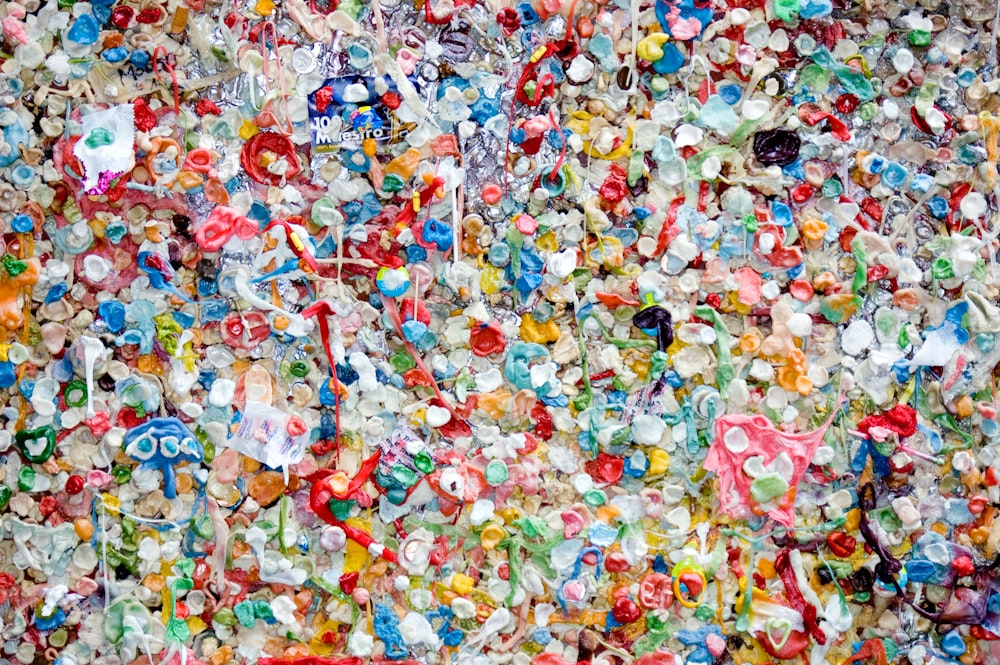
The study found that there are a variety of entities that have taken up an active role against the production and use of single use plastics in Malawi. They comprise civil society organizations, environmental activists, journalists and politicians. These organisations and individuals have focused on mesaging that will propel lawmakers into making laws that will see the complete ban of plastics as well as educating the general population on the negative effects of plastic pollution and the urgency that the problem deserves. There are several modes of communication strategies that these campaigners are employing in order to deliver messages concerning plastic pollution and the various ways to tackle it. In this short piece we detail some of the communication strategies that are commonly.
- Social and print media and opinion polling
All the advocates against the production and use of single use plastics use social media to communicate their campaigns against production and use of plastics. The most common ones being Facebook, Twitter, Instagram, YouTube, TikTok and Whatsapp. These platforms have been used with the aim of reaching the greatest numbers of people to inform them of the need to have realistic and progressive laws and policies that will help with the current plastic problem being faced by the country. The most common words being used on the platforms are words such as “demand” from the duty bearers to put up policies and laws that will ban completely, the production and use of plastics. Other messages have carried key words such as “boycott”, “refrain”, “avoid” and “deny” single use plastics.
For example, the Lilongwe Wildlife Trust lodged a campaign for the complete ban of plastic production in Malawi. In 2019 Lilongwe Wildlife Trust harnessed the power of media, research and advocacy to campaign for an historic ban on thin plastics in Malawi. The Trust used effective communication channels and processes in order to influence the decision of the Supreme Court in banning the use and production of thins plastics in the country. Lilongwe Wildlife Trust collaborated with United Nations Development Program and Malawi Parliamentary Conservation Caucus in order to indirectly lobby the Supreme Court of Malawi to reinstate the ban on thin plastics arguing that plastics caused irreparable damage to people, wildlife and the communities. The campaign became necessary after several plastic producing companies obtained an injunction that prevented the Environmental Affairs Department from implementing the thin plastic ban. Through its social media pages, Lilongwe Wildlife Trust pleaded with the government to reinstate the ban by conducting an assessment and providing a report on why plastics are harmful to the environment. In addition to the social media campaign, it also held press briefing with UNDP and conducted an opinion poll in trying to provide for information that would support their stand on banning thin plastics.
There also was use of independent polling on the scale of plastic pollution in Malawi whose results were published in an open letter in a leading national newspaper. The results of the opinion poll were that over 1,500 respondents were unequivocal in their concern about the dangers of plastic and their support for the ban. It was revealed that 94% of people supported a ban on thin plastics; 95% believed plastic pollution is a serious issue for Malawi and 97% believed that plastic waste poses a risk to people, animals, and the environment. By getting the people involved, the organisation included the thoughts of different people on whether banning thin plastics was beneficial or not. The results of the poll showed that most people were against having thin plastics in the environment because of the effects that it has on their lives and all living things in general. The open letter was addressed to the Government of Malawi urging it to introduce the thin plastics ban. Several NGOs, private organisations and public sector groups signed this open letter and further pledged our support for the ban as a crucial first step in the fight against plastic pollution.
In an attempt to send a clear messages on the extent of plastic pollution problem in the country, the campaign used images that reflected the real problem on the ground.
A dumping site in Bangwe, in the City of Blantyre.
It therefore can be concluded that social media and print media and opinion poll was an effective tool in influencing the outcome as it clearly stated out the consequences of the continued use of thin plastics in the country. It was explicit and appealed to the emotions of the readers as regards to the impact of thin plastics on peoples’ lives.
2. Demonstrations
The Movement for Environmental Action in conjunction with the Association of Environmental Journalists organised a demonstration whose objective was to encourage Malawians to use other alternatives rather than plastic bags. During the demonstrations, the demonstrators were carrying reusable and biodegradable alternatives just woven baskets, woven mats and wooden food containers. The messages were generally that such reusable are the best alternatives to plastic as they do not harm the environment.
Campaigners carrying a woven basket during the demonstrations
The study was able to show that most Malawians still rely on plastic materials such as carrier bags, plastic cups, plastic spoons and plastic food containers because these are cheap and easily accessible as compared to the alternatives. The use of alternatives was much emphasized on the placards that the demonstrators were carrying and the main message being communicated to the public was to ‘refrain’ from using plastics and opting for better alternatives that are environmentally friendly. The messages also urged other stakeholders, especially non-governmental organizations to join in the fight against production of plastic ware and specifically, thin plastics.
The intention of the images used was to create awareness amongst Malawians on the negative effects of thin plastics. A large portion of the Malawian population is ignorant when it comes to paying attention to the effects that thin plastics may have on their lives. Others are simply oblivious of the negative effects. Thus, by using images that convey the negative effects and the availability of alternatives, the aim is to change peoples’ attitudes towards thin plastics. A change in attitude means having the masses behind the fight for environmental conservation through the ban of thin plastics. Once a large chunk of the population becomes aware of the negative effects of thin plastics, a massive demand from the populace to duty bearers will have a huge impact on legislation, policy as well as the public’s perception towards production and use of thin plastics.
- National radio and television
Lilongwe Wildlife Trust, the UN Development Programme and the Malawian Parliamentary Conservation Caucus joined forces to host an expert panel discussion calling for a national ban on thin plastics. The panel discussions were held on radio and television and the objective was to lobby parliamentarians and other policy makers to pass a law that completely bans plastic production. The event was also covered extensively by the national press (Lilongwe Wildlife Trust, UNDP and MPCC Ramp Up Pressure for Thin Plastics Ban – Lilongwe Wildlife Trust). This mode of communication was important as it brought together different organisations to create some awareness on the importance of the ban of thin plastics in the country and it reached to a large audience beyond the intended law and policy makers to the general public.
Conclusion
Pre-dominantly, the messages encouraged a pro-environmental behaviour by the public, the courts and all other relevant stakeholders. Using messages that appeal to peoples’ emotions is relevant when it comes to environmental protection as it makes people question their behaviour towards the environment. Naturally, humans are anthropocentric in nature in that they believe that the environment is theirs to exploit. Appealing to peoples’ emotions has the power to shift people from anthropocentric to ecocentric as that means that the environment is to be sustainably exploited and this results in the environment being protected which benefits all parties who inhabit the environment.
It was observed that the messages on thin plastics had the power to make people realise that plastics, being harmful to the environment meant that even the people would be affected. Another good example that hit home was a message that demonstrated the negative effects of presence of plastics in soil to crop yield. Malawian being a country that heavily rely on agriculture, the intended audience was able to immediately see how important it is to put a stop to the production of plastics.
In conclusion, the communication processes used by the different institutions were influential to the outcome that was achieved as it highlighted the problems that would continue amidst the people of Malawi if thin plastics were not banned. It caught the attention of important stakeholders, the ordinary people and different organisations which showed that people had the same goal, to force the government to ban thin plastics in the country. The aim was to use the messages to influence the Supreme Court’s decision on enforcing the production and use of thin plastics in the country. By exposing the effects of thin plastics on the environment, the messages delivered the desired result as the country witnessed the court reinstate the ban on thin plastics. This means that all plastic companies in Malawi are not allowed to manufacture and produce thin plastics. Companies are also not allowed to sale thin plastics which means that people will not be using thin plastics something which is beneficial to the environment and the wellbeing of the people as well. The goal is to have people’s attitudes and behaviour towards the use of thin plastics be transformed. With effective enforcement of the ban, no household should be using thin plastics.

